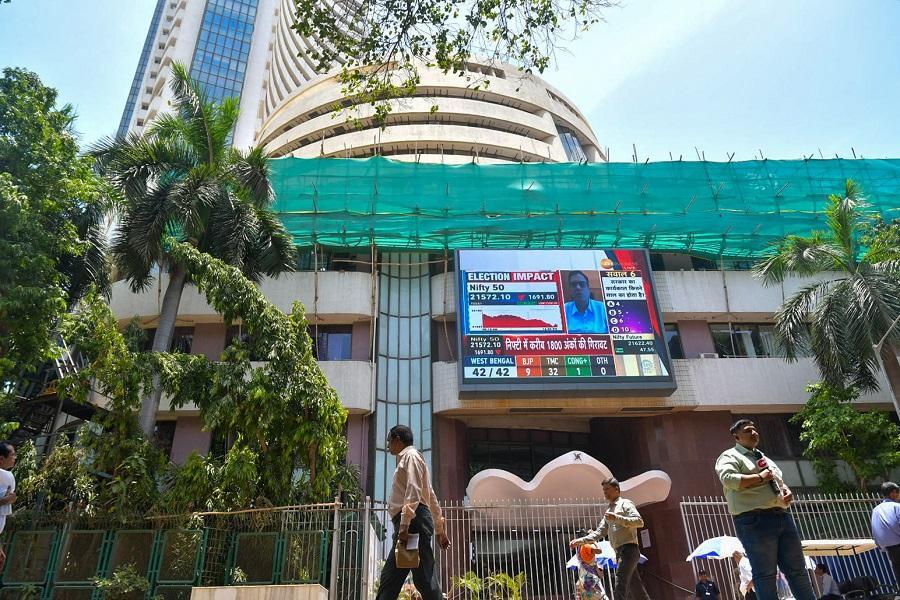
Indian Markets Dip Marginally This Week Amid Tariff Concerns
The Indian benchmark index Sensex plunged over 600 points this week, while the Nifty fell to a two-month low, closing below the 24,600 mark amid widespread selling across sectors. Market sentiment was weighed down by concerns over the newly imposed 25% US tariff on Indian exports, persistent Foreign Institutional Investor (FII) selling, and weakness in global markets, analysts said on Saturday.
The week started on a positive note, with the Sensex rising 171 points on Monday, driven by gains in banking and finance stocks. However, the rally was short-lived, as the index plunged 564 points on Tuesday, due to concerns over the US tariffs. The Sensex continued its downward trend on Wednesday, falling 143 points, as the Nifty50 index broke below the 24,700 mark.
The market’s weakness was further exacerbated by the FII selling, which accelerated in the past few days. FIIs have been net sellers for the past few weeks, resulting in a cumulative outflow of over $1.5 billion in July. The selling pressure was also fueled by the weakness in global markets, as investors turned cautious due to growing concerns over the impact of the US-China trade war on global economic growth.
The US tariffs on Indian exports, which were imposed last week, also weighed heavily on the market. The tariffs, which range from 10% to 25%, will be effective from August 6, and are expected to impact several Indian exporters, including those in the pharmaceutical, textile, and automotive sectors.
The Indian government has expressed concerns over the US tariffs, and has urged the US administration to reconsider its decision. However, the market sentiment remained cautious, as investors worried about the potential impact of the tariffs on India’s economic growth.
The pharma sector, which is one of the biggest losers due to the US tariffs, was among the worst performers this week. The Nifty Pharma index fell 4.5%, as stocks like Dr. Reddy’s, Lupin, and Sun Pharma plummeted. The rupee also weakened, falling 54 paise against the US dollar, as the market remained concerned about the impact of the tariffs on the country’s current account deficit.
The IT sector, which has been a major beneficiary of the US-India trade ties, also fell prey to the market weakness. The Nifty IT index fell 3.5%, as stocks like TCS, Infosys, and Wipro declined. The sector’s weakness was attributed to the FII selling, as well as concerns over the impact of the US tariffs on the sector’s growth prospects.
The market’s weakness has raised concerns about the potential impact on the country’s economic growth. India’s GDP growth rate has already slowed down to 6.8% in the April-June quarter, from 7.3% in the same period last year. The market weakness is expected to further exacerbate the slowdown, as investors become more cautious about investing in the country.
Despite the market weakness, analysts remain optimistic about the Indian economy’s growth prospects. They believe that the country’s strong fundamentals, including a robust banking system and a growing middle class, will help it to recover from the current slowdown.
“We believe that the Indian economy has the potential to bounce back from the current slowdown,” said a leading analyst. “The country’s strong fundamentals, combined with the government’s efforts to stimulate growth, will help it to recover in the long run.”
In conclusion, the Indian markets dipped marginally this week amid concerns over the newly imposed 25% US tariff on Indian exports, persistent FII selling, and weakness in global markets. While the market weakness has raised concerns about the potential impact on the country’s economic growth, analysts remain optimistic about the country’s growth prospects in the long run.




